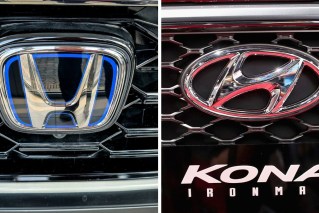Jeff Bezos’ pandemic windfall: Amazon posts record profits as online shopping boom continues

Have you shopped online for the first time in your life during the pandemic?
Well, you’re not alone.
Research from Australia Post shows 900,000 households shopped online for the first time and 8.1 million shopped online in total between March and August.
According to the Australian Bureau of Statistics, online purchases made up 11 per cent of total retail turnover in August – up from 6.4 per cent in August 2019.
And Amazon has been a major beneficiary.
On the same day that it reported a record third-quarter profit of $US6.3 billion ($8.9 billion), the online retail giant announced on Friday that it is building a second fulfilment centre in Melbourne that will be almost twice the size of the MCG.
Located in the Western suburb of Ravenhall, the 37,000-square-metre warehouse will have the capacity to store up to six million items from Amazon.com.au.
Which makes sense given one retail survey found 47 per cent of Australians who shopped online over the past 12 months had bought goods from Amazon – up from 30 per cent the year before.
But what most retailers are yet to find out is how much of the shift towards online is permanent.

Amazon founder Jeff Bezos has added more than $US73.6 billion ($102.8 billion) to his personal wealth in 2020. Photo: Getty
The general feeling is that there will always be a place for bricks-and-mortar retail, but significantly more Australians will shop online after the pandemic than before it.
“Once you’ve set up credit card details and an account, and you’ve got a relationship with an online retailer, the transactional element of shopping online becomes quite convenient and easy,” said Gary Mortimer, a retail specialist and associate professor at Queensland University of Technology.
“So there’s been a massive jump online and I think it will continue to grow.”
Professor Mortimer expects shoppers to buy more of everything online – saying no particular retailer or segment of the market stood to miss out on the trend unless they failed to invest in their online presence.
“Really, it’s a market for you to lose,” he said.
Even struggling retailers such as Myer and David Jones have reported strong online sales growth during the pandemic – let alone industry darlings JB Hi-Fi and Temple & Webster, where profits have soared.
Despite reporting an annual loss of $172.4 million in September, Myer saw online sales jump 61.1 per cent over the full financial year while David Jones reported a 100 per cent increase over the second half.

Sales jumped 27.3 per cent at JB Hi-Fi between July 1 and September 30. Photo: AAP
Australian Retailers Association chief executive Paul Zahra described online sales as “the fastest growing category of the Australian retail industry”.
“For those retailers with a strong digital and online offering, we’re noticing less of an impact from COVID, as compared to retailers that didn’t have such a presence,” he told The New Daily.
“So, it is important that the industry builds a collectively strong online presence.”
Yet the future of retail is not a choice between online and bricks-and-mortar.
“But a successful marriage of the two – both working in tandem to support the other,” Mr Zahra said.
“It’s the logical best way forward and it’s what customers want. Retailers are reinventing and reimagining the Australian retail landscape.”
Louise Grimmer, a senior lecturer in the Tasmanian School of Business and Economics, offered a similar take.
She said most shoppers would prefer to buy “higher-involvement” products in physical stores – so they can seek advice and get a feel for the products – and reserve online shopping for cheaper goods and repeat purchases.
Tweet from @TheNewDailyAu
“For more everyday items such as groceries and household goods – or low-involvement products – many consumers will shop for these products online. But physical retail will dominate more experiential shopping, higher-involvement products,” Dr Grimmer told The New Daily.
“I think here we will see consumers perhaps making the initial purchase of items in a store and then repeat purchases online – this is where retailers like Mecca have performed well.
“Offering that really immersive in-store experience and then allowing their customers to also access a sophisticated and responsive online shopping experience.”
Dr Grimmer was also confident that local shops could see off the extra competition from Amazon, as Australia’s dispersed population “makes super-fast delivery a real issue for a retailer like Amazon, which markets itself as cheap and fast”.
“For many consumers living in regional and rural Australia, Amazon is not able to provide fast delivery and this makes it not as competitive as it is in other countries with larger clustered populations and more sophisticated logistics and delivery networks,” she said.
“And for those consumers who want that in-store experience, Amazon will also lose out to either local stores or national chains like JB Hi-FI and the like.”








